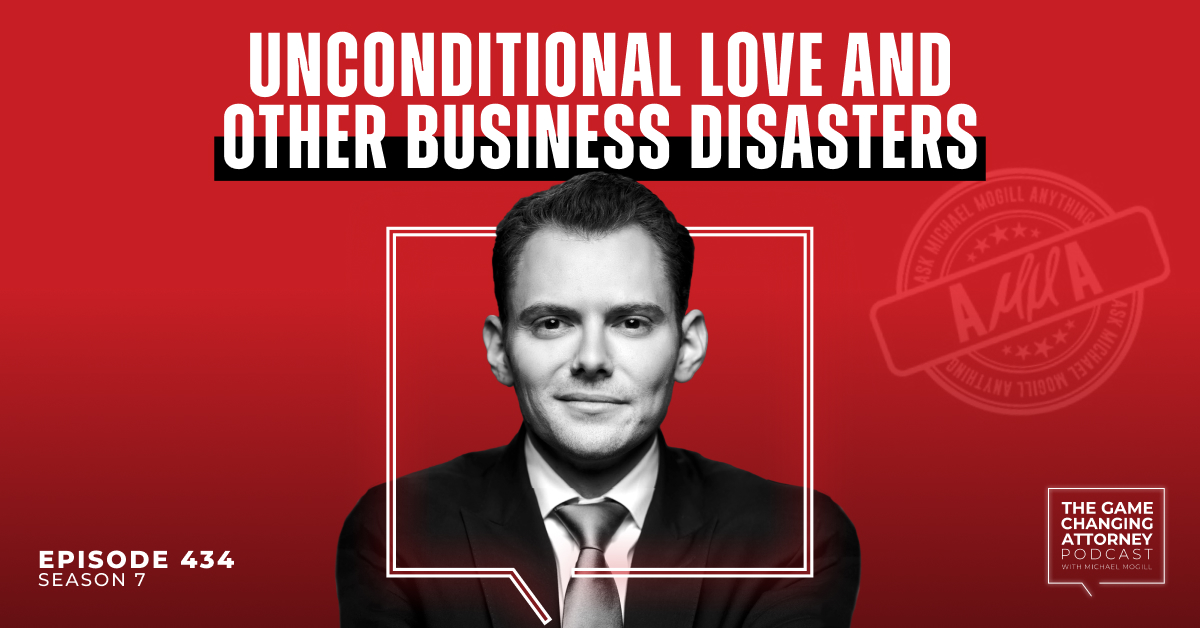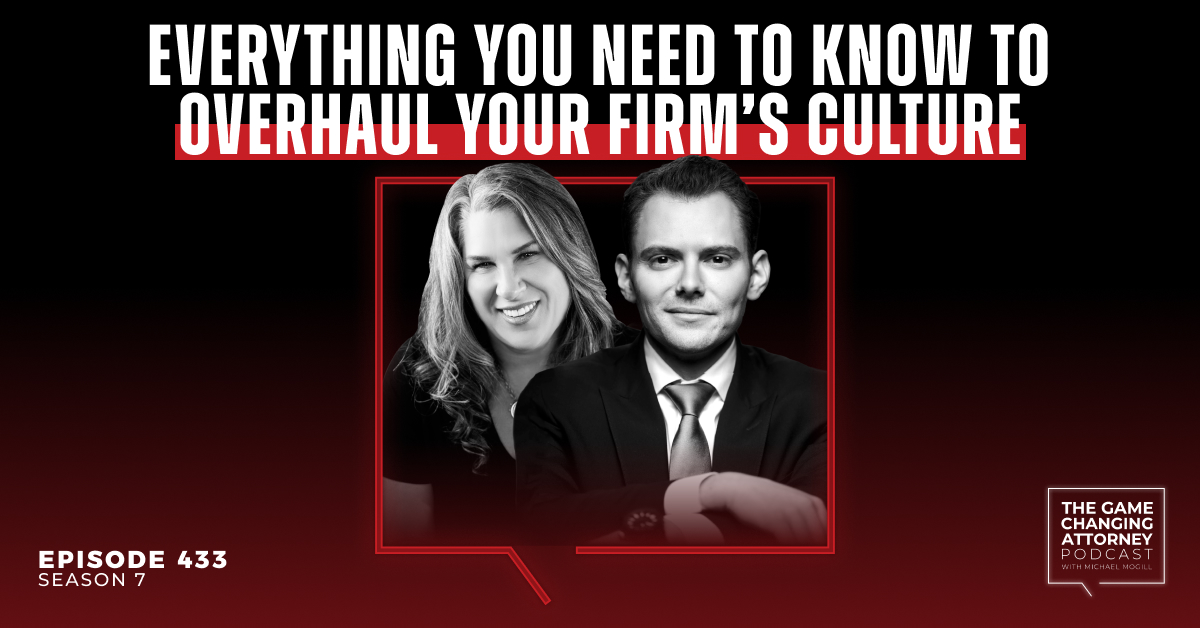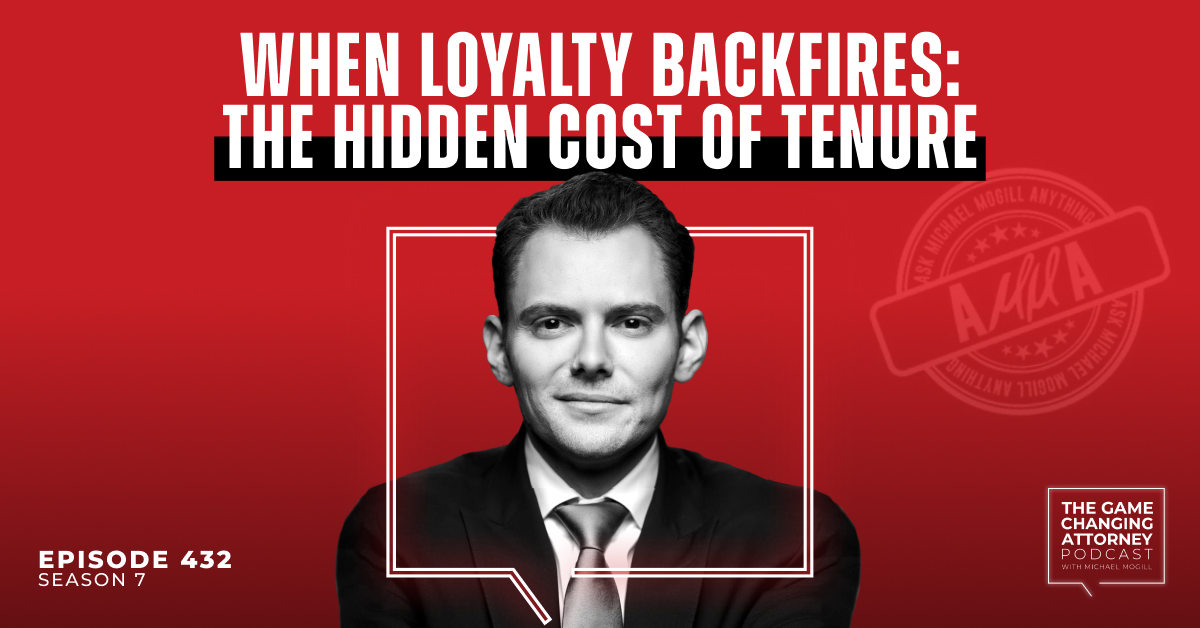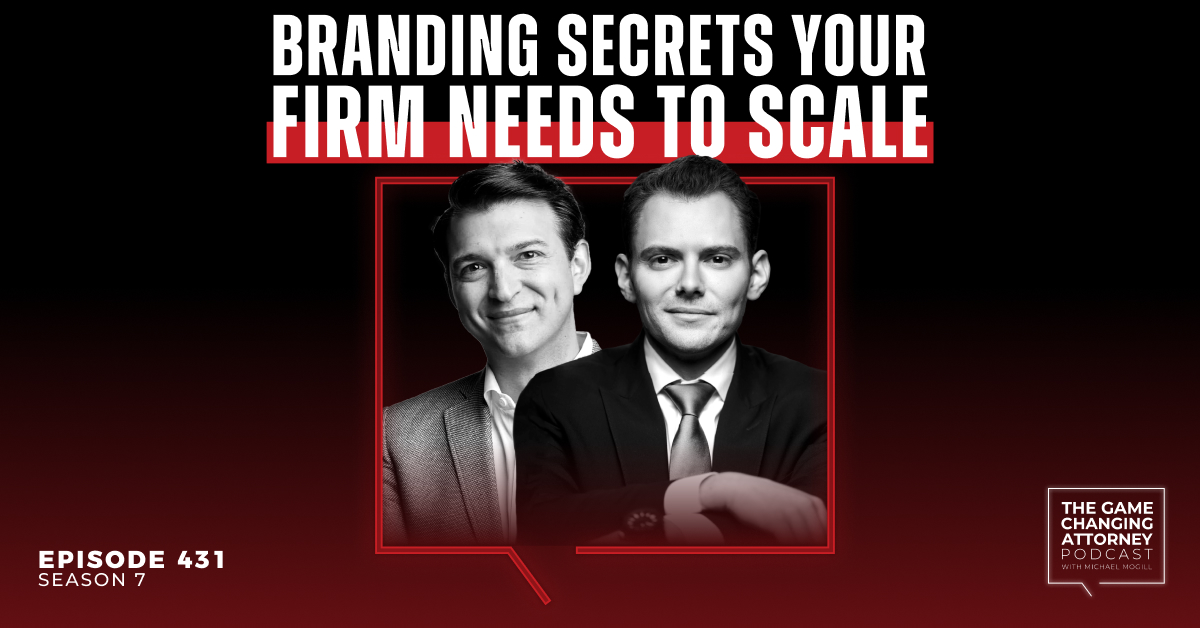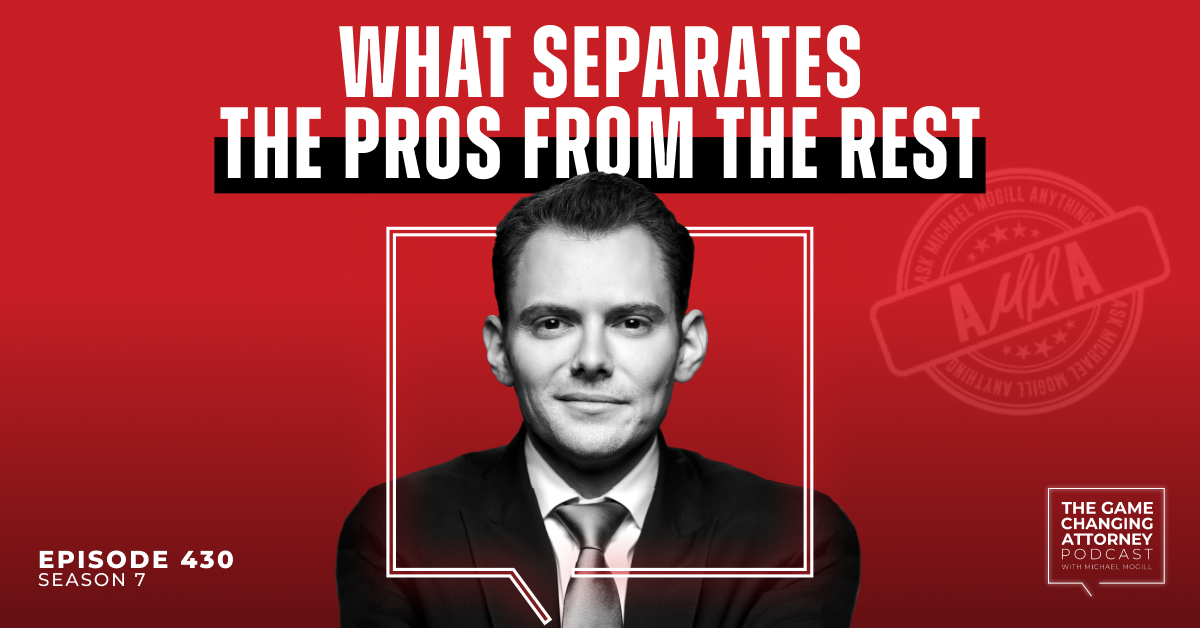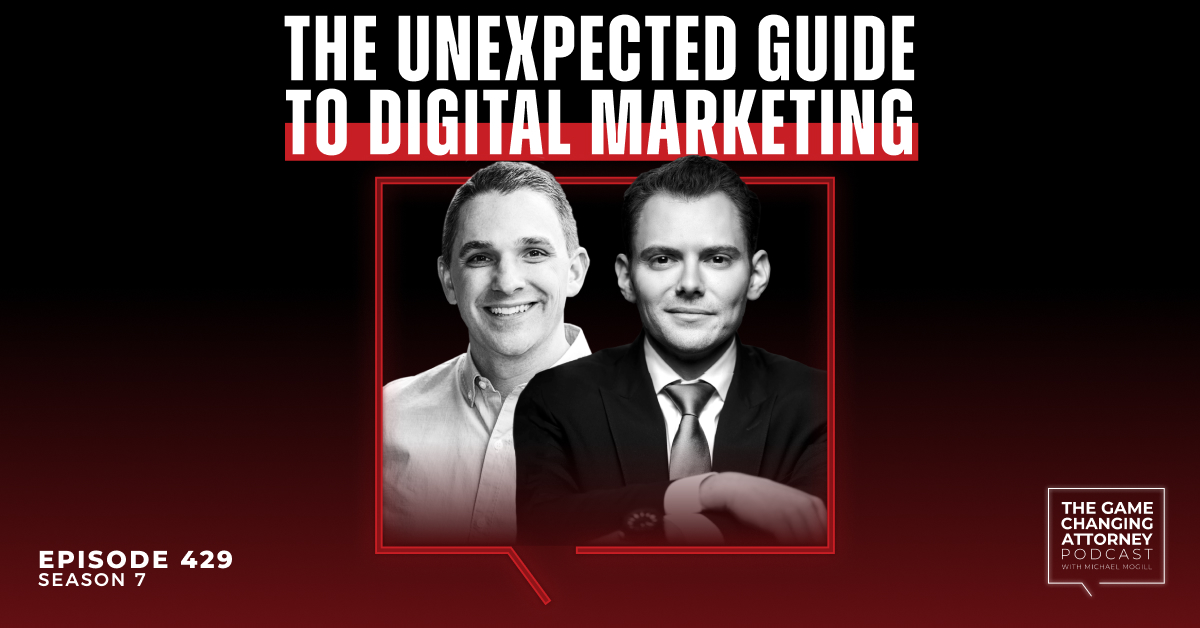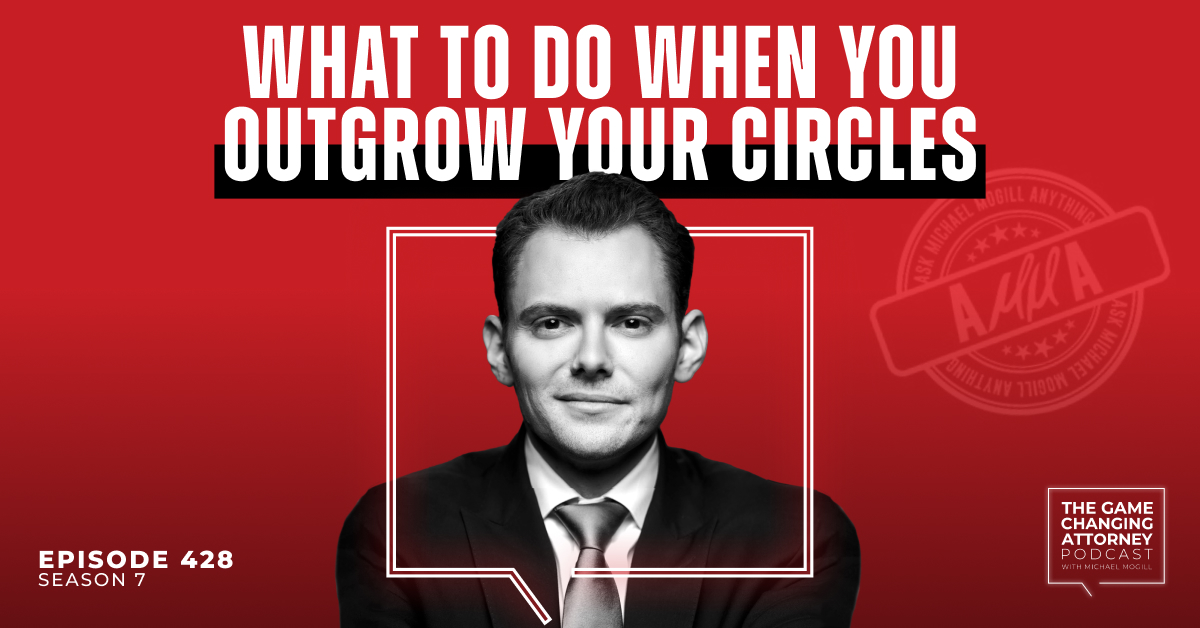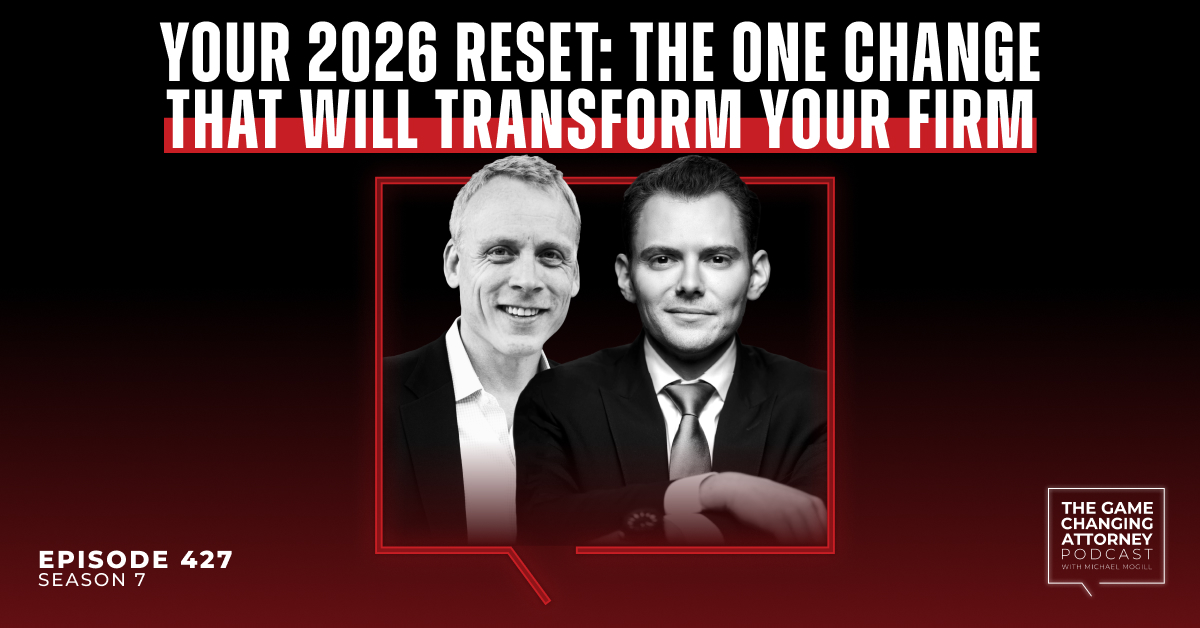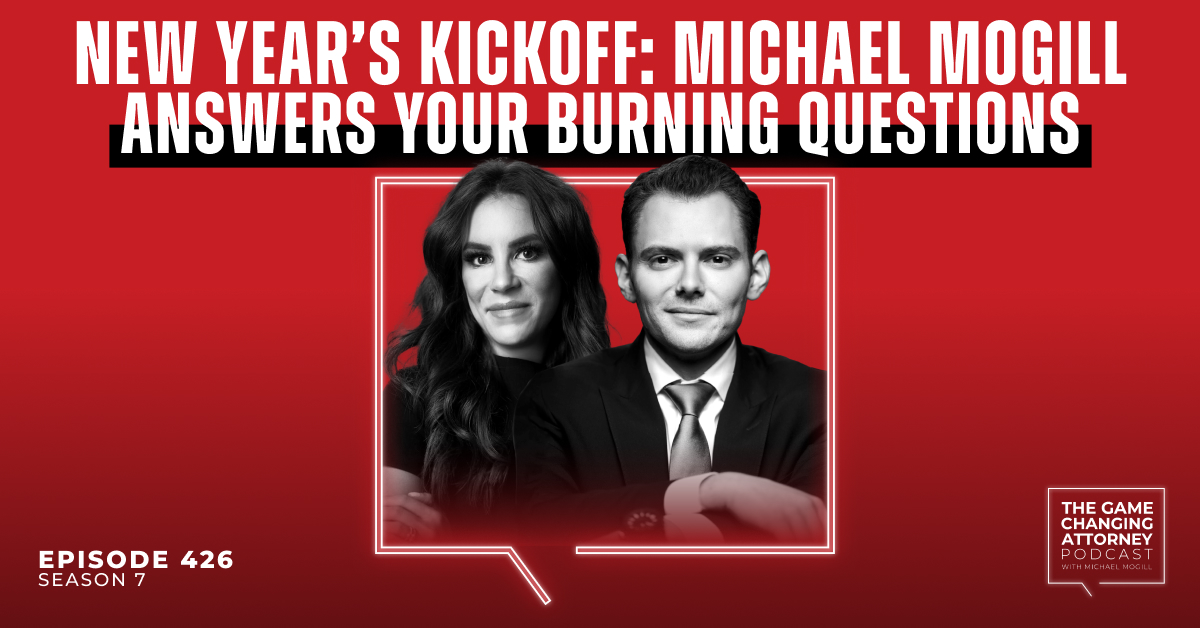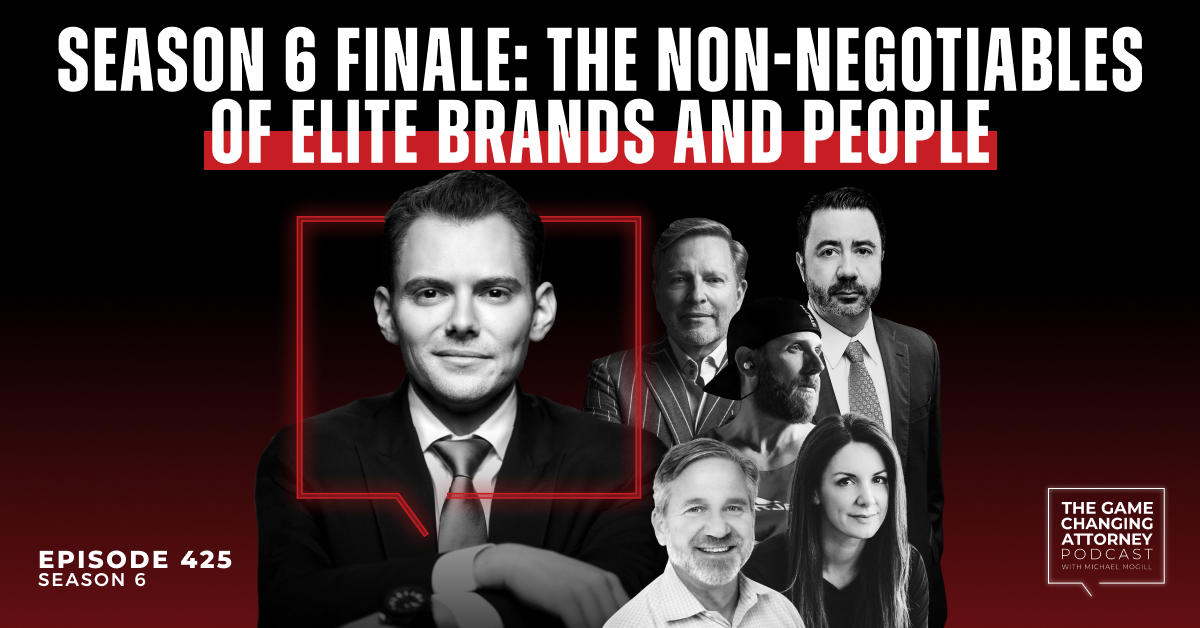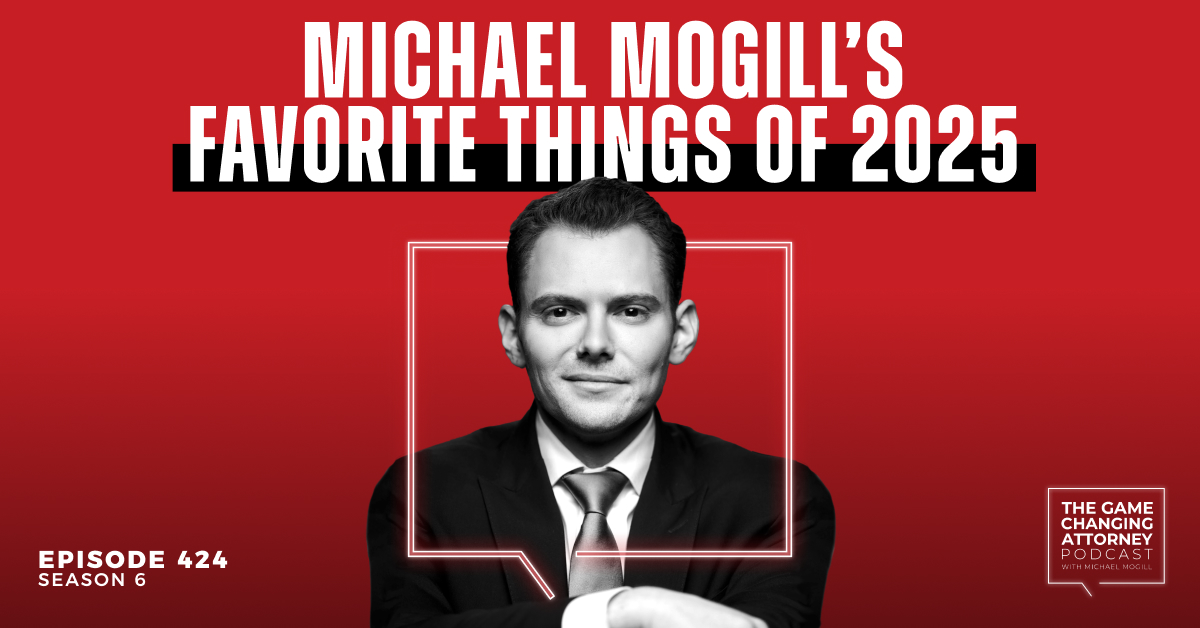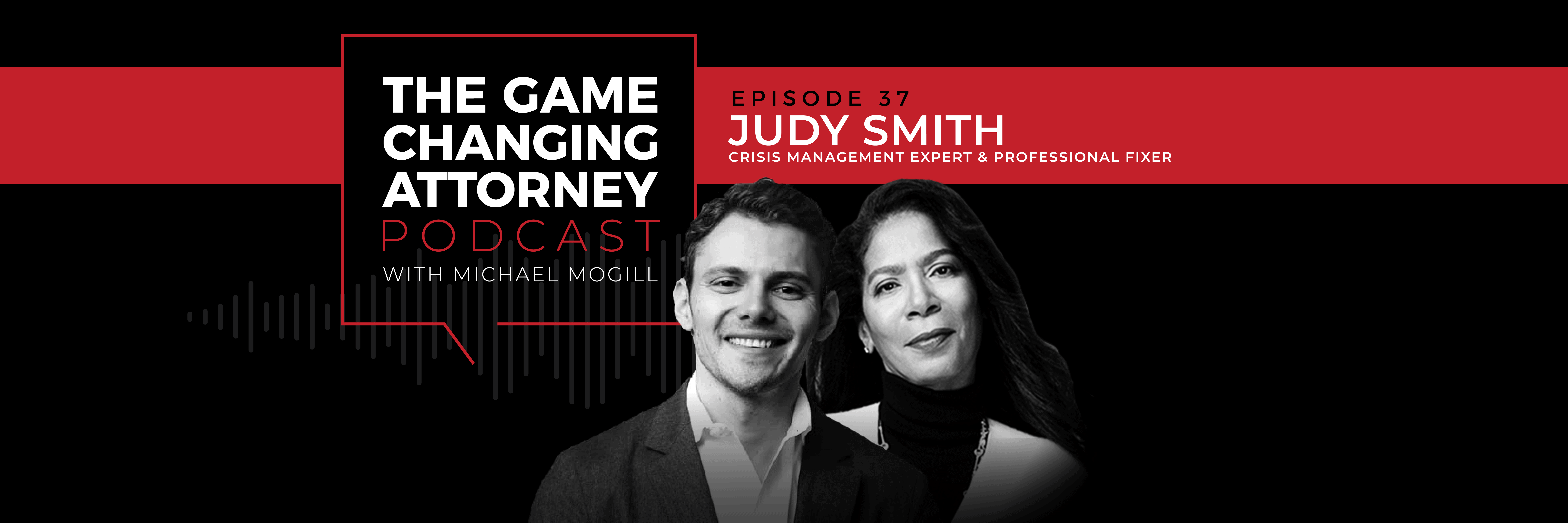
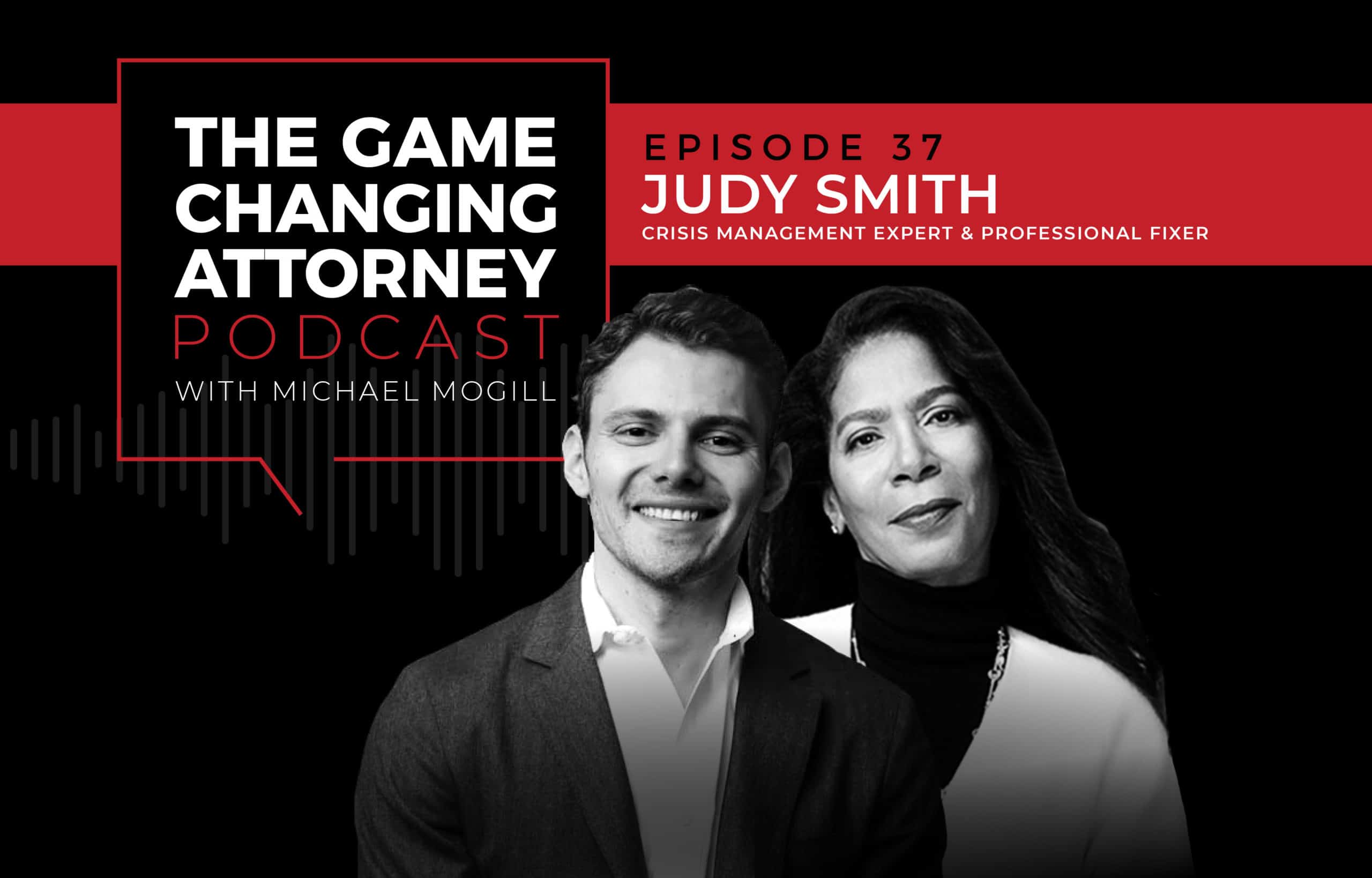
EPISODE 37 — Judy Smith — Managing Crisis Like a Professional Fixer
Judy Smith‘s work as a world-renowned crisis management expert and entrepreneur has earned her the reputation of being the ultimate “fixer.” She was George H. W. Bush’s Deputy Press Secretary, she graduated law school, and her ground-breaking work even inspired a hit TV show: Scandal.
In this episode, Judy unlocks her vault of expertise to teach every law firm owner how to manage crisis like a professional fixer. Here’s just a small slice of the wisdom she shares in this unforgettable conversation:
- Be prepared, act fast. Bad news gets across the globe in 18 seconds, so it’s important to be ready when a crisis strikes.
- What, when, and how. You must determine the right strategy and the vehicle for each specific crisis communication; not everything can be handled in an email or a tweet.
- Know when to walk away. Not everything is fixable, even for Judy Smith, so you need to know and accept a lost cause.
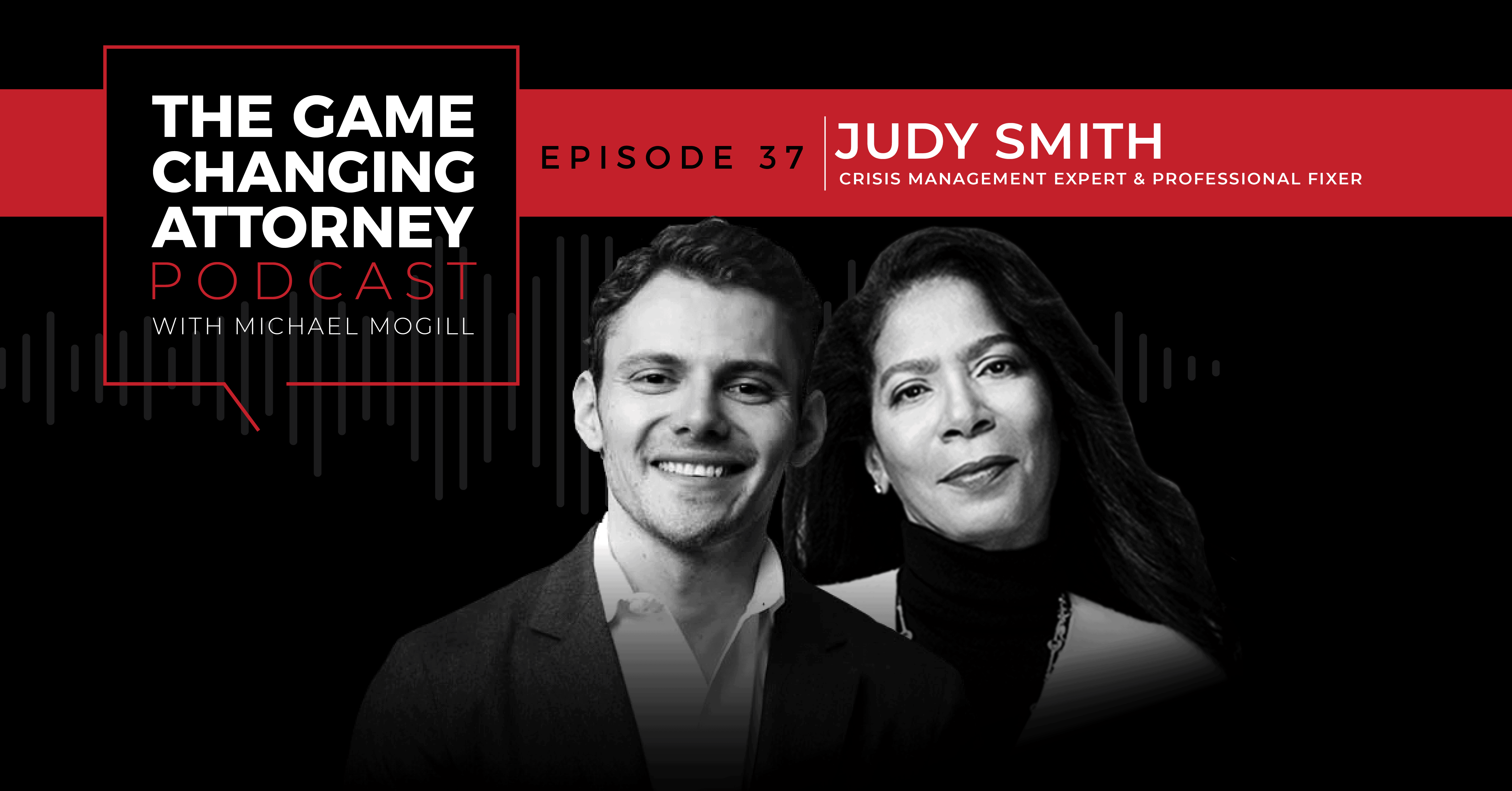
Listen & Subscribe
Show Notes:
3:05 – What does it mean to specialize in crisis management? “You have to have a love for it. I learned a lot in dealing with issues, and really what we try to do is help people in organizations mitigate risk and see around the corner right before the problem comes.”
5:09 – From PR to law school. “I like the concept of justice. I like arguing and presenting my point of view, and of course, we have to win — there’s no doubt about that. So I like all of that. The law is in the area of communications, because you have to be so careful when you are in a legal situation with what you are communicating. You can’t go back and say, ‘I didn’t mean it’ and take it back. You really have to be careful about what you say. When you first have a case, you’re dealing with the law and the facts for the first time, so you have to give yourself a little wiggle room in terms of what you want to say publicly.”
7:45 – Working at the White House. “You’re truly at the center of the universe there, and you have to have the ability — just like you do in law — to make quick decisions based on the facts that you have because somebody somewhere is going to tweet about it, go on the air about it, or write about it. So you have to be able to weigh your words and messaging quickly. It was an amazing experience and a good opportunity for me to use a combination of law, public policy, and communications.”
13:35 – Lawyers need a plan for crises. “First of all, your business is so competitive. The second thing that you want to think about is not only is it competitive, but there is starting to be a lot of tech innovation in law. So you want to think about how that’s going to affect the kinds of services that you offer. You definitely want to have a playbook. There are some crises that you can avoid. You couldn’t say, ‘Let me do a playbook for COVID,’ right? But I do think that if you look at your clients, you as a law firm can prepare for general things you know will be coming down the pipe at some point.”
19:25 – Should businesses share their stance on social issues? “I think it’s important to, if you have action. Yes. Most employees are pretty clear about the kind of culture that they want to work in, and so I think it’s important to a lot of groups. I think it’s important to employees, and I think it is important to the public to know where you stand as a company. It’s probably important to your shareholders, and it’s important to people who buy products as well.”
27:49 – You can’t fix every crisis. “It’s painful. I’ll tell you why: if somebody comes to us, and they give us a case and we feel like we can win, and for whatever reason it doesn’t line up right, you’re surely disappointed. There are some things that just are not are not fixable, and no matter what you do, people’s opinions may not change about it. For example, the Casey Anthony case. She had drowned her kid, and she got off for it. So, what’s interesting about that is if you ask people about it today, even if she was found not guilty, people still believe that she did it. So, you can’t fix that — it’s not possible. There are some things you just have to leave where they are, and that was a hard lesson to learn.”
30:53 – On being the inspiration for the TV show Scandal. “I think in a lot of ways, it showed the collective power of the world in which we live. It was the first time that a African American woman was a lead on television in about 35 or 40 years. I didn’t do that. I mean, I had a hand in it, but who really did it was the 10 million people that watched every single week and said, ‘We like what we see.’ So, that told the entertainment industry that we need to see more of that, which I think is a good thing.”
33:13 – How do you stay stress-free? “I take 30 to 40 minutes to myself every day and go on a walk. There’s something nice about being outside in nature. The other thing that I do is plan out my whole week on Sunday. I try to make sure that I map out my days so that I’m not waking up in the morning feeling like I don’t have an agenda. It’s not just scheduling things, but it’s also being proactive about what I want to get accomplished. I also just make sure that I am taking care of myself from a health perspective. Oftentimes — you know lawyers — we all have these stressful jobs. So you have to take care of yourself first before you can help all of those other people that you’re trying to help.”
35:00 – How do you define success? “I think everybody has to do that for themselves. For me, if I feel I’ve done a good job and I’ve done my absolute best, then I feel like that is successful. The other way that I feel like work is successful is if we have achieved the client’s objective, because what I do is, I start the business from the back end. When I sit down with clients, I’ll say, ‘What is your endgame? What is the outcome you want to see?’ And then I develop a strategy and work my way back toward that. So that, to me, increases my level of success.”
37:12 – What does being a game changer mean to you? “I think a game changer is somebody that changes the standard, industry, or culture in some way or fashion in an impactful way. I would say to all of you that are listening: each and every one of you has the ability to be a game changer in what you do. There’s no doubt about it.”
EPISODE RESOURCES & REFERENCES
Marlin Fitzwater
George H. W. Bush
Twitter
Monica Lewinsky
Wesley Snipes
Michael Vick
Sony Pictures Entertainment
Gary Hart
Band-Aid
Casey Anthony case
Scandal (TV show)
Olivia Pope
Connect with Michael
- Text directly at 404-531-7691
